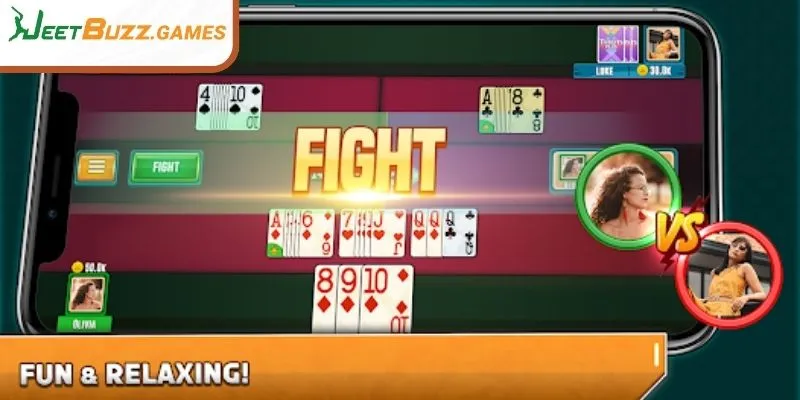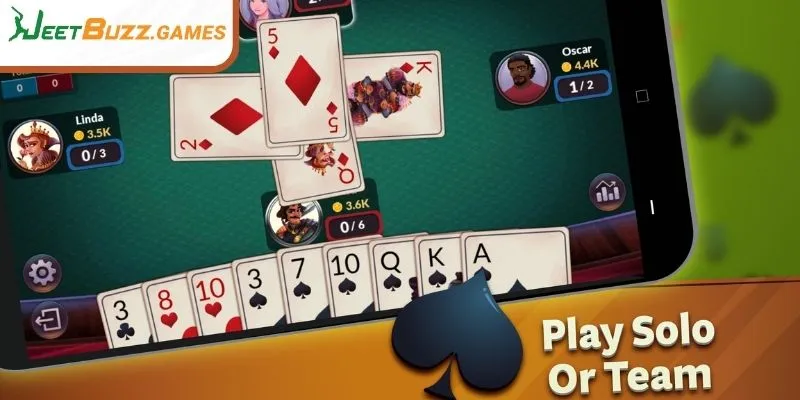The history of card games has woven itself into Bangladesh’s culture for centuries, blending strategy, luck, and social connection. From royal gatherings to online platforms like JeetBuzz, this journey reveals how a simple deck evolved into a cultural phenomenon that still unites players today across every generation.
The early roots of card games
Early origins of card play in Bengal
Before digital entertainment existed, the history of card games began with handcrafted decks made from palm leaves and painted symbols. Traders and travelers carried these early designs from Asia to the Bengal region, where they evolved into games reflecting intellect, storytelling, and friendly rivalry.
Ancient asian origins
The first playing decks appeared in China and India centuries ago, setting the foundation for structured play. Over time, these early versions reached South Asia through trade, where local artisans crafted vibrant designs unique to Bengal. Such artistry reflected both devotion and imagination, shaping the foundation of recreational play and strategy.
Adoption in bengal society
As leisure became part of noble gatherings, playing decks turned into a symbol of wit and class. The card games in Bangladesh developed alongside poetry and art, where players viewed strategy as both entertainment and intellect. Every move on the table reflected a blend of tradition, communication, and friendship that continues to this day.
Cross-cultural interactions and shared influences
Bengal’s merchants interacted with Mughal and Persian communities, creating a hybrid form of gameplay. Those exchanges influenced the deck designs, rules, and symbolism still visible in South Asian play styles. Through centuries of evolution, card-based recreation became an enduring expression of Bengali identity and cross-cultural creativity.
Early game variations
Traditional trick-taking and matching games flourished, often played during harvest festivals or family gatherings. These variations carried deeper meanings-each symbol represented luck, faith, or fortune. Such roots still shape how people enjoy table entertainment, linking today’s digital play to the card games from long ago.
Western exposure shaping regional traditions
British influence on traditional card play
When European culture reached Bengal, the history of card games took a new turn. Western styles reshaped how locals perceived competition, skill, and probability, turning simple pastimes into structured social rituals.
British cards enter bengal
European settlers brought standard playing decks, introducing new suits and symbols. Locals merged them with older traditions, producing distinctive Bengali variations. These new hybrids reflected colonial interaction and the rising curiosity among players eager to explore advanced strategies beyond casual amusement.
Changing trends in gambling behavior
Under British rule, recreational gatherings often included small-stakes gaming. This change inspired competitive play and social rivalry. While still focused on skill, these gatherings also reflected changing norms-marking an important milestone in the ongoing history of card games within Bengal’s colonial context.
Social symbolism of play
Leisure transformed into an act of social expression. Playing cards showcased refinement and intelligence, especially in urban elites. It became common for families to host evening sessions, blending discussion and competition-a habit that shaped social etiquette for generations of Bangladeshi households.
Transition to modern styles
Hybrid formats resembling poker or bridge began to gain popularity. These forms demanded both logic and bluffing-a significant step toward the origins of poker known today. As strategies deepened, players embraced analysis and discipline, setting the stage for a future where online competitions would flourish.
The rise of modern card gaming culture
Modern card gaming evolution in Bangladesh
As Bangladesh entered the 20th century, the history of card games shifted toward inclusivity and entertainment. What once was limited to nobles became a shared experience across families and communities.
Emergence of local tournaments
Friendly competitions emerged in cafés and clubs, where participants showcased their tactical skills. Winning a local event became a matter of pride. These gatherings strengthened community bonds, reflecting how traditional recreation could evolve into structured, competitive events admired across the nation.
Influence of cinema and media
Films featuring strategic play inspired fascination among young audiences. Card sessions began symbolizing both mystery and excitement on screen. This media portrayal reshaped public perception, making traditional play an appealing lifestyle choice that united generations through fun and mental challenge.
Technological evolution
Television and early computer software began digitizing classic games, paving the way for interactive platforms. This gradual transition from physical decks to digital interfaces marked a new chapter in the history of card games, bringing convenience without losing cultural roots or emotional connection.
Origins of poker and global impact
The origins of poker introduced an entirely new mindset-focused on calculation, patience, and reading opponents. As online connectivity grew, local enthusiasts began exploring global platforms. Many learned advanced strategies via the poker guide JeetBuzz, enhancing both their knowledge and competitiveness on a worldwide stage.
The digital era and the future of card games
Online evolution of Bangladeshi card play
Today, technology has redefined the history of card games, blending culture, convenience, and community. Digital access now brings players together, transforming traditional recreation into a global social network.
Virtual gaming and player reach
From desktops to smartphones, platforms like JeetBuzz register allow everyone to enjoy classic play instantly. Accessibility fuels participation, introducing competitive formats while honoring traditions passed down through generations.
Cultural preservation through digital play
Modern apps ensure that local heritage remains intact. Whether through Bengali-themed designs or festive events, online platforms safeguard customs while reaching wider audiences. Such innovation keeps traditional energy alive amid evolving technology.
Global contests shaping the scene
International tournaments attract players from Bangladesh, challenging them to compete against skilled opponents worldwide. These global connections not only elevate skills but also highlight the cultural depth behind the history of card games, proving that tradition can coexist with progress.
Future outlook and innovation
Augmented reality and advanced digital features will further enrich interactive play. Modern players can discover unique strategies through resources like the best card games Bangladesh. The fusion of technology and culture promises a vibrant future, where every shuffle reflects centuries of shared legacy.
Conclusion
From handcrafted palm-leaf decks to immersive online platforms, the history of card games remains a mirror of creativity and connection. Each era brought evolution without losing cultural heart. With modern engagement through JeetBuzz, Bangladeshi traditions continue to thrive, proving that the essence of shared play is timeless and ever-evolving.





